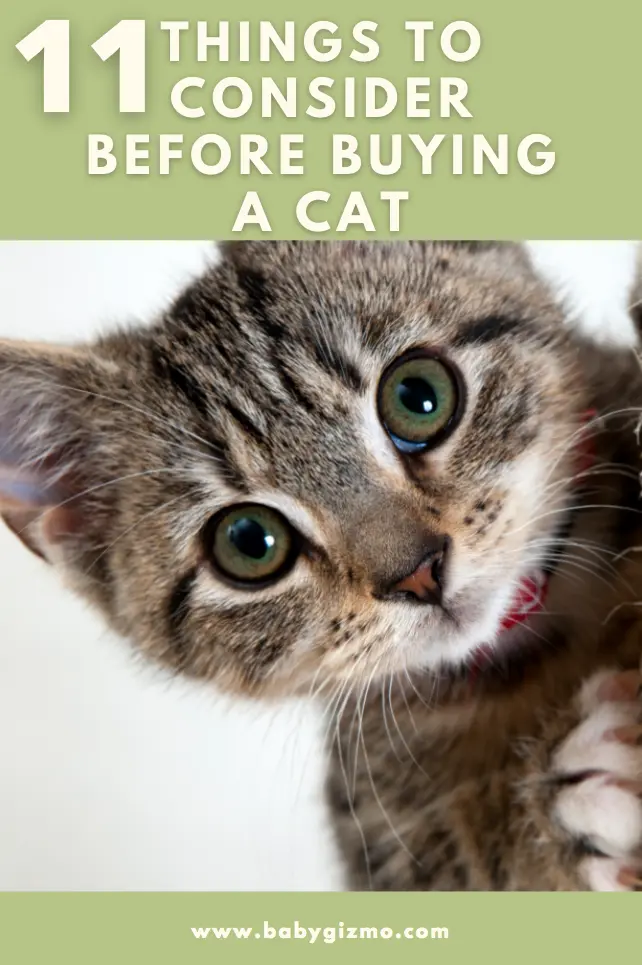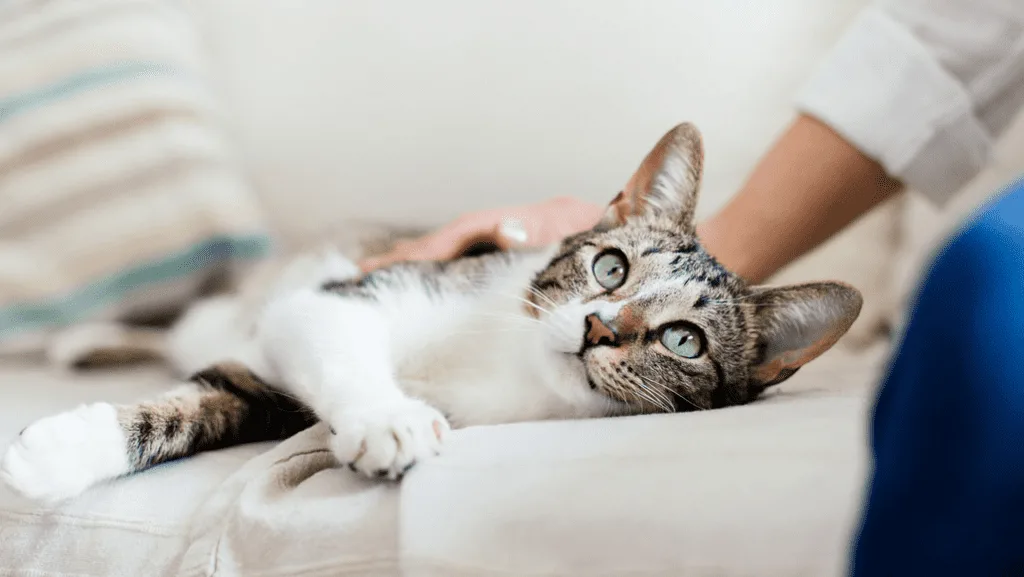
It has been well documented that during the Coronavirus stay-at-home orders, pet adoption rates have increased. In the last few months, I have received several messages from friends saying that they are looking into buying a cat, and what does cat ownership involve?

Background: last year, my family and I adopted a beautiful little eight week old kitten from our local shelter. She was curious, playful, sweet, and an energetic bundle of joy. (I only say “was” because now that she’s older, she’s a much more sleepy bundle of joy. Cats sleep a lot!) While my husband repeatedly said we were “a one cat family,” I was walking through PetSmart earlier this year, and our local shelter had brought the sweetest, nine month old cat for adoption. With one swift call to my husband (and zero preparation) the little black cat came home with me a few hours later. Now the two cats are playmates and sleep buddies.
While cats are very easy going animals, they are another living being, so there is quite a bit of work involved in owning one. And while your older children may say they will help with feeding and cleaning the litter, ultimately, the responsibility all falls on the adults’ shoulders. Think of it like this: you’re about to have another child, but thankfully, one that doesn’t talk back. So here are some important things you should know before you buying a cat.
Cats live for around 17 years.
That is a long commitment, so before buying one, be sure that you are ready for a 17 year responsibility.
Cat food, cat litter, pet insurance, and vet bills add up.
Be sure to do a budget check before purchasing your cat. Cats require both wet and dry food. You can leave dry food and water out all day, but the wet food will need to be given throughout the day. Litter also needs to be purchased regularly, and there most likely will be vet visits. You may want to take out pet insurance too, so be sure to check out prices before buying your cat.
Litter must be cleaned out daily.
Because cats are clean animals, they don’t like to use the bathroom where there is already a lot of urine/feces. For this reason, it’s a good idea to get a weekly schedule made listing who is going to clean the litter each day. Side note: if your cat pees somewhere other than the litter box, it will absolutely stink (worse than human pee) so you will need something strong to get rid of the smell and to make sure it doesn’t come back to the same spot to do it again (trust me, I speak from experience). I recommend this stuff.
Cat litter gets everywhere.
This is the unglamorous side of cat owning that we don’t hear much about. Cats are clean animals and, by nature, they like to dig a hole to do their business in. That digging can sometimes cause a mess outside the box, not to mention they carry it out of the box around the home. So you may want to invest in a cat litter mat, and a litter box with high sides. If you have an attached garage, you can put the litter box there. We do not, so our bathroom gets vacuumed a lot.
Put away small items/plastic/elastic bands.
Remember the crawling stage of motherhood where baby puts everything in their mouth? Keep an eye on your cats, because they have a tendency to do this too. Mainly when they’re young, but some older cats may too.
Cat nails need to be trimmed regularly.
Cat nails should be cut about every 2 weeks. When you have a kitten, they get used to the process and it’s pretty easy to do when they’re asleep (just like a baby). With older cats, it may take some time if they’re not used to it. We purchased these nail cutters, and this video really helped us with our second cat.
Your furniture/rugs will get scratched.
You can buy all the scratching posts in the world, a cat will inevitably scratch some part of the home that you wish they wouldn’t. It’s best just to make peace with this. (Side note: Never declaw a cat. It is completely inhumane. Would you like your nails ripped off?)
Your vacations will require a catsitter.
If you plan on taking vacations, your cat will still need wet food, water, and someone to clean out their litter box. So be sure to have someone you trust either come to your home to check in, or to watch the cat at their home.
Check for allergies before buying a cat.
This may seem a little extreme, but we know of several families that bought cats and only came to realize after living with one that they were allergic. Getting tested will save some heartache in the future.
Know whether your cat will be an indoor/outdoor pet.
When we adopted our cat, the shelter informed us that cats must stay indoors because of the high number of coyote attacks in our city. If you are planning on letting your cat outdoors, you may need to purchase flea treatment and additional vaccines.
If you have young children, they may end up with scratches.
Cats can get easily frightened by young children, or cats may be playful and end up scratching someone. Keeping those nails cut will help, but scratches are a part of cat ownership.
If you have read all of the above, and still want to purchase your first fur baby, please adopt one from a local animal shelter. According to Petpedia, in 2017 around 1.5 million animals in shelters across America were euthanized. 670,000 dogs and 860,000 cats made up this huge number, and this is mainly due to the shelters being too crowded. To make room for more animals, others are put to sleep. But you can save these poor, sweet animals! Getting a cat from a shelter means that you can ask them about its personality and background, and most shelters allow you to meet your cat before purchasing them. So visit a shelter and save a life!
